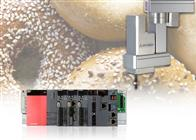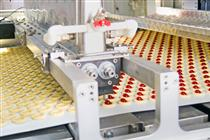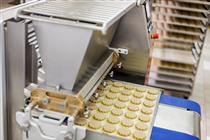Making baked products manufacturing fit for the future: Productivity and efficiency through data transparency
Pressure on prices is rising in the bakery market. Of particular concern is the increasing pressure from the discounters who are competing with cheap products baked freshly in store. At the same time, productivity and profit margins are low in the food processing industry in comparison to other producing industries. Above all small and medium-sized operations are facing the challenge of competing in price terms with the discounter and supermarket offers manufactured largely on automated monolines. To stay competitive in the long term, operations are increasingly looking for opportunities to increase efficiency in production while at the same time reducing energy consumption. Reliable characteristics and the collection and accurate analysis of process and production-related data provide the necessary transparency.
Status quo with potential
Small-scale operations or franchise bakeries which supply up to 200 outlets in their vicinity produce several products on one line. The automation potential of such bakeries is high, but is frequently underestimated or considered too expensive. However to increase productivity and minimise manufacturing costs, it is necessary to exploit precisely this potential. Those wishing to hold onto market access must act to modernise production. Sticking conservatively to old methods and ignoring automation technology is a mistake if an operation intends to remain viable in the long term. The intelligent use of automation components can make a decisive contribution to securing the competitiveness of a company. Automation suppliers and machine builders therefore need to appeal to end customers for technical understanding and an open attitude toward technological innovations. Historically, small- and medium-sized operations perform the different process steps of bread making, such as kneading, proving and baking, independently. However, Overall Equipment Effectiveness can be significantly increased simply by networking various isolated solutions with the help of effective and cost-effective standard automation technologies. Bottlenecks, weaknesses, cost drivers, waiting times or item costs can be precisely defined and energy consumptions precisely assigned. The data from a networked, integrated system can be used to optimise processes such as oven-loading schedules or determine varieties and quantities per unit of time. This information can then be used to process and define processes and procedures.
Transparent production
Bakeries frequently suffer from significant discrepancies between financial planning and reality. Transparency is contributed to by collecting actual production data including changeover times and other manual processes and producing realistic form factors. Transparency is also a prerequisite for continuous improvement in terms of the Kaizen philosophy. One aspect of this is Total Productive Maintenance, i.e. carefully interlocking production and maintenance through constant monitoring of the production line. With the help of data transparency, processes can be constantly optimised to reduce costs, increase quality assurance and, something which is limited in scope in the food and drinks industry, achieve greater time efficiencies. Data transparency is easy to create even in existing systems using specialist technologies.
Two initial scenarios
In a very few cases systems are ordered for a Greenfield project, i.e. a brand-new system in a brand-new environment. In a new-build project, the latest technological structures can be established from the outset. Components can be networked with the help of the latest communications standards or using automation platforms such as the iQ Platform from Mitsubishi Electric. These provide seamless communication within the system with a high degree of transparency.
Generally, however, existing plants are modernised (Brownfield projects). Within structures which have grown organically over time, companies need to retrospectively link isolated solutions from different manufacturers and of different ages in order to collect all relevant data for the higher-level management system, such as CRM (Customer Relationship Management), ERP (Enterprise Resource Planning) or SCM (Supply Chain Management) at field level. With the help of standard automation components such as the MES-IT interface module from Mitsubishi Electric the necessary transparency can be achieved quickly and cost efficiently here as well. Wholly in terms of Industry 4.0, the module detects production data and test results from every manufacturing step and transfers them in real-time to higher-level systems. These then produce transparent and reliable analyses of processes and procedures using Excel, SAP or pre-produced reports. Such equipment is quick to connect to existing systems with no interruption to machinery processes.
Preventative maintenance
The optimising of machine running times by preventative maintenance is a major issue in the food processing industry. If a machine suddenly fails, an entire batch is usually lost. This is expensive and damaging to productivity. Modern control platforms, touchscreen operating devices and sensors with comprehensive, integrated functionalities as well as flexible maintenance and repair concepts such as the FAG SmartCheck from Schaeffler FAG or the MAPS Life-Cycle-Software tool from Mitsubishi Electric provide the necessary data transparency for simple implementation of preventative maintenance concepts.
The FAG SmartCheck for example recognises and reports the first vibrations of a system long before any noise is generated. The reaction time before machine failure is therefore substantially longer. The maintenance cycle can be adjusted to production at an equally early stage. Machines can be easily retrofitted with the FAG SmartCheck. In bakery systems, for instance, it could be retrofitted to the loading system, mixer or conveyor belts.
Robots in the production area
The installation of robots may also be worthwhile to increase system flexibility and availability. If several products are manufactured, packed or manipulated on one line, production cycles can be designed to be substantially faster and more cost efficient with space-saving robotic and camera systems. At the same time the high hygiene requirements of the food and drinks industry are met.
Robots can be ideal, for instance, in Pick-and-Place applications. In one biscuit production line in the USA, daily production was increased from 12 tons to 20 tonnes of biscuits with the help of robotic technology. Gentle handling by the robots reduced waste and increased quality by 20%.
A pioneering example of robotic technology in bakeries was the interactive application presented by Mitsubishi Electric in 2012 at iba in Munich. Stand visitors were able to apply personalised messages to a virtual cake via an iPad. The script data recorded via the tablet is transferred to a PC. A laser scans the contour via the PC monitor and this information is then sent to the robot controller. With this kind of solution it would be possible to transmit a greeting in one’s own handwriting online and to collect the respectively decorated cake from one’s own local baker.
Interface standards
Developed in close cooperation with automation companies, systems engineers and users, the University of Weihenstephan is currently developing a universal standard for the bakery industry. The Weihenstephan standards define an interface for the connection between machinery and software. It will enable the full connectivity of all systems via a universal IT interface, which will bring significant commercial benefits. This is because the connection of machinery to an MES is the basis for the efficiency calculation of individual lines and their accurate cost calculation. The interface is already established in the brewery and beverage industry and is being introduced into the meat processing industry. Under the name “WS Bake” it is now being refined for the bakery industry to enable the capture of the relevant information for this industry for quality assurance, weakness analysis, efficiency evaluation and energy consumption.
Industry 4.0 in the bakery
Industry 4.0 is also being introduced into the food and drinks industry. The focus is on new automation technologies, intelligent production processes and not least the assurance of Germany as a production centre. Smaller and medium-sized operations need to set themselves apart from the competition. New sales concepts, greater flexibility in production and greater responsiveness to customer requirements up to and including personalisation of products are all essential. With the help of automating concepts in terms of Industry 4.0 – the Internet of Things – these targets are in sight.
So-called Cyber-physical Systems together with state-of-the-art technologies deliver faster, more flexible and more complex production processes, permit personalisation from one unit to a whole batch and increase the transparency of all processes by storing data in the cloud. For this, production processes must be robust, stable and reliably equipped with artificial intelligence. Information must be exchanged and made available on secure networks in real-time. Research and development, including with the aid of model and simulation methods for risk assessment are required in all relevant areas. Any companies which ignore this technological revolution place their futures at risk.
Here is a simple example of Industry 4.0 in the production process: At the batch kneading stage the system calculates which compartment of the deck oven will be free for the next batch and at what temperature. Local I/Os, RFID- and fieldbus systems may be considered for better tracking of products at the individual process stages.
Stay future-proof
The baked products manufacturer faces major challenges. These are increasing product diversity, increasingly rapid new developments and product change-overs on the line, increasingly fluctuating order quantities, shorter product life cycles, stricter statutory regulations particularly with respect to hygiene directives and increasing cost pressure. The technological requirements in the baking industry are particularly high due to the range of possible variations in manufacturing processes and product specifications. Continuous improvement of production processes and efficiency increases cost savings, optimises profit margins and above all guarantee competitiveness in the long term. The basis of this is data transparency within networked production, which is easily achieved with standard automation technology. Automation can substantially contribute to the long-term sustainability of new systems, as well as systems which have been expanded over the years.






































